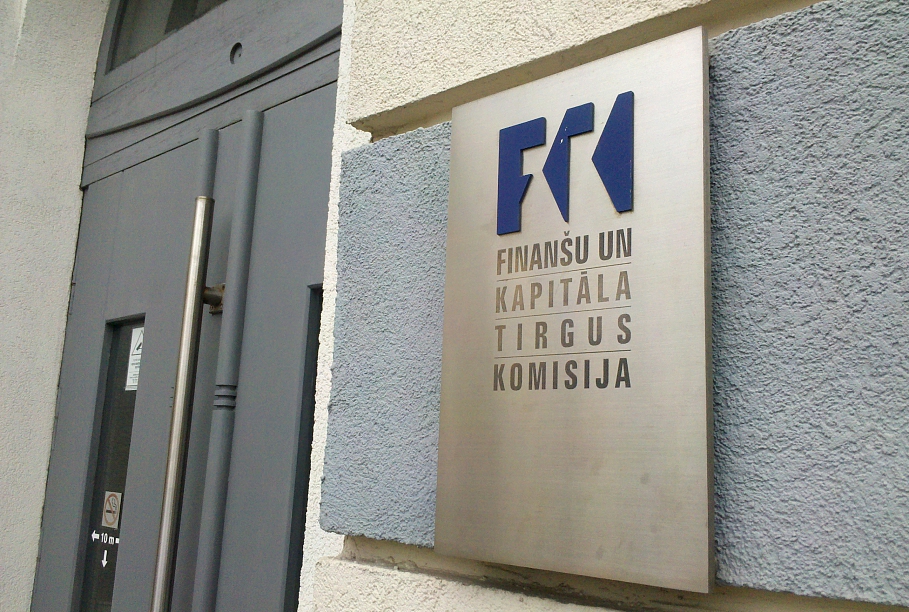Measures included amendments to the Financial and Capital Market Commission (FKTK) Law, which sets out a number of significant changes to how Latvia's financial regulator operates and oversees financial and capital markets. Saeima deputies passed that change by 57 votes to 20 with the opposition Harmony party voting against.
Saeima also passed amendments to the Law on Prevention of Money Laundering and Terrorist Financing designed to ensure consistency and compliance between Latvian legislation and European Union legal norms, as well as to remedy the shortcomings identified in the Moneyval 2018 report.
However, FKTK itself vehemently opposes the changes to its statutes. In an extraordinary release June 12 it said "false information" had been spread by public officials and defending its anti-money laundering record. However, it did not specify which officials it claimed had been lying.
"Such statements are not true and there is a deliberate flow of information that is misleading for the public... FKTK was one of the best-rated institutions in the area of risk management and international co-operation in last year's [Moneyval] report," it said.
Under-pressure FKTK chairman Peters Putniņš also pointed out that in 2016 he had received a state award for his work and called for a "professional discussion in a democratic country".
"We see that the financial sector's "overhaul" and changes in FKTK's governance model is in fact preparing for the change of management at FKTK without any reasoned justification and evaluation of the work of a professional institution," Putniņš said.
"It is therefore a matter of exerting political influence over an independent institution and the forced replacement of its leadership, who have been appointed by the parliament of the Republic of Latvia and whose mandate is valid until 2022," he added.
This constitutes "an unprecedented case of political interference in the history of the FKTK," he said.
"As an industry supervisor and a member of the Single Supervisory Mechanism of the European Central Bank, we are obliged to react at this point providing our own clarification, so as not to expose the FKTK and ECB to undue reputational risk. We see that the so-called "overhaul" of the financial sector or changing the FCMC management model is actually a preparation for the change of current FCMC management without any reasoned justification and professional evaluation of the institution's performance. The fact that this process is taking place due to external political pressure is no longer being concealed," he said.
In future, instead of the current five council members, the FKTK council will consist of three members - the chairman and two council members. The chairman of the committee shall be approved by the Saeima for a term of five years upon the recommendation of the chairman of the commission by the members of the Cabinet of Ministers. Applicants will be selected in an open competition, and the same person will be able to serve for a maximum of two consecutive terms as chairman or council member.
In accordance with the amendments to the law, the FCMC Chairperson for the Cabinet of Ministers must be appointed to the Cabinet by 1 October of this year and the former Head of the Commission - Putniņš - shall perform his duties until the approval of the new Chairman or until the Saeima has released him from his job.
Previously, the Saeima was appointed by the Saeima on a joint proposal of the Minister of Finance and the President of the Bank of Latvia for a term of six years. Other members of the Supervisory Board were appointed by the Chairman of the FKTK, and there was no limit to how many times the position of the person concerned could be held.
The procedure for dismissal of the chairman or member of the supervisory board of FKTK before the end of their term is also specified in the new law. They will be able to be dismissed by Saeima following the submission of a request for dismissal by at least 34 members, as well as if they do not get necessary security clearance.
In what amounts to an open invitation to Putniņš to quit his post, amendments to the law provide for a one-off compensation of 80 per cent of annual salary to the FKTK chairman and his deputy, if they resign before 1 August this year. The amendments will come into force the day after they are promulgated by the President - likely a matter of days at most.






























